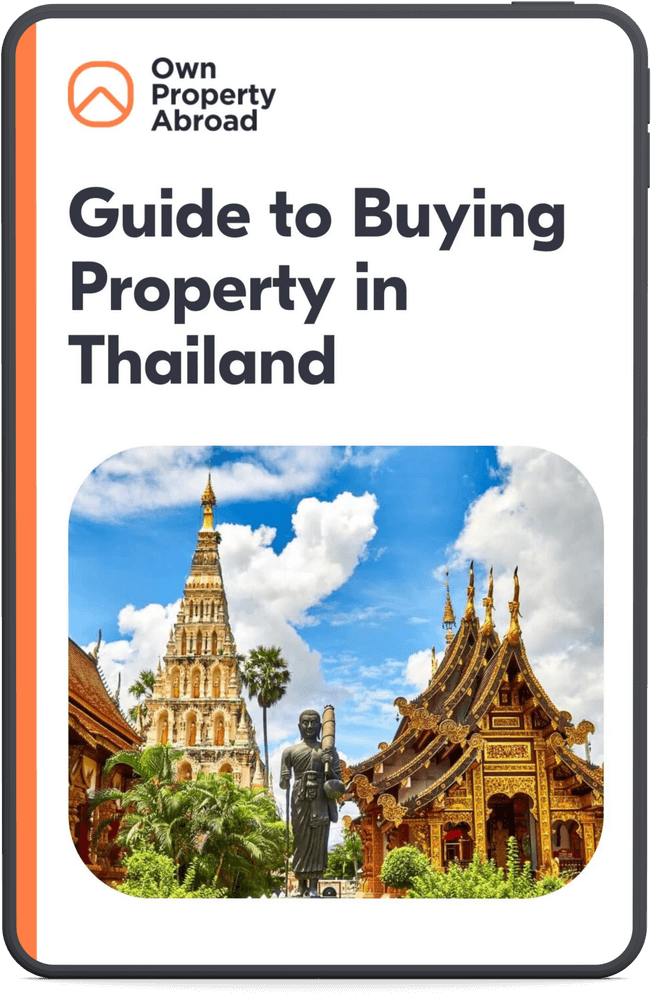1. Fake land titles
There are cases of fake land titles of properties being sued as real estate scams in Thailand for foreigners. Land titles in Thailand are essential documents or proof of legitimate ownership and real estate property registration in the Thailand Land Department. Sometimes, sellers provide falsified or invented land titles to scam buyers into thinking that they own the land. There are also cases where the land titles are altered to hide information about the encumbrances attached to the property to deceive the prospective buyer into buying it.
One effective way to avoid these types of real estate scams in Thailand is to scrutinize the land titles before buying the property to avoid legal issues in the future. If you need to figure out what to check in the land titles to determine their legitimacy, you can find a reliable website to guide you, consult companies like Own Property Abroad for legal help, or consult lawyers.
Valuable insights and practical advice, distilled from years of expertise and real-world experience.


2. Off-plan property scam
In real estate, off-plan is a term for purchasing a property that still needs to be completed or constructed. The buyer buys a property based on the developers’ available plans before even constructing it. Buyers take these deals because they offer higher return value. Off-plan projects are also used as real estate scams in Thailand for foreigners to attract investors and swindle their money. One instance is the multi-million Baht real estate scam in Phuket, Thailand, where many foreigners and Thai nationals fall victim to the fraudulent real estate investment project, and the developer swindles their money. Sometimes, the property is not completed to the agreed standard between the buyer and contractors.
To avoid off-plan property scams, you must transact with a reputable developer to guarantee your money against scams or possible failure. It is crucial that you do a background check on the developers before investing in their off-plan real estate projects. When dealing with developers, you must track their history and client satisfaction to know you are in good hands and avoid real estate scams in Thailand.
3. Foreign-targeted fraud
A foreigner was scammed into buying two condominium units worth ฿ 15 million ($446,100) from a property agency in Koh Samui and did not receive the transfer of ownership rights of the properties. This issue is widely known in Thailand as the Samui property scam. This real estate fraud is one of the most common scams in Thailand. It is targeted at foreigners unfamiliar with Thai real estate law and taken advantage of by people who pose as real estate agents who also use this tactic to deceive foreign buyers.
To avoid getting into this type of real estate scam in Thailand, always buy properties from developers on the stock exchange. One way to determine if you are transacting with a legitimate agency is to check their government licenses. Transact directly with the property owners or their real estate agents as much as possible. Furthermore, visit the site to inspect the property and personally talk with the real estate agents you transact with. Meeting them in person is far better than having your dealings virtually. This process involves knowing essential details about them and checking if there are suspicious matters that catch your attention.
4. Bait-and-switch scam
Agents in Thailand are also using bait-and-switch tactics to sell properties. Although this might not be considered entirely as a scam, the ulterior motive and deceitful plan make it a scam. In bait-and-switch scams, the agent will offer a buyer a desirable property at an attractive price. The fantastic features of the property will lure the buyer, and when the buyer expresses interest in the property, the agent will inform the buyer that the property is no longer available. The agent will then offer another property to the buyer that may have different benefits or value compared to the previous property.
Foreigners might never notice that they are being baited, so it is important to be vigilant in transactions. Researching and verifying the availability of the property and the authenticity of their advertisement are essential ways to avoid getting involved in a bait-and-switch scam. Working with trusted agents will also reduce the risk of getting scammed. Finally, trust your gut when dealing with real estate transactions.
5. Rental scam
Aside from scams in purchasing real estate properties, there are existing real estate scams in Thailand for rental properties. Renters will most likely look for a place to rent online because it’s convenient. Looking for a place online might be easy since it reduces transportation expenses. However, scammers will post fake properties online, properties that do not exist, or properties they do not own.
To avoid this scam, only wire money or sign an agreement after first getting a look at the property or ensure it is through a reliable agency. Ensure you visit the property to check for a mismatch in the online information because rentals often misstate and over-advertise their postings. Ensure that the property they posted matches the property you see in person. An ocular visit will also allow you to assess if the rental property fits your needs.
Let Own Property Abroad help you with real estate due diligence
Are you looking to buy property in Thailand? Conducting due diligence is essential to navigate legal complexities and avoid potential real estate scams in Thailand. Own Property Abroad can guide you through a seamless and hassle-free property journey. Thanks to our in-depth knowledge and experience in the Thai market, we can assist with legal requirements, due diligence, and other real estate-related matters.
With our expert team, you won’t have to tackle the complexities of the Thai market on your own. For more information on how we can assist you, please provide your contact details below or email us at [email protected].
Valuable insights and practical advice, distilled from years of expertise and real-world experience.


Frequently Asked Questions (FAQs)
Is it safe to buy property in Thailand?
It is safe to buy property in Thailand as long as you transact with reputable sellers, check the legitimacy of the property documents, and follow proper due diligence in obtaining ownership.
Are there any property scams in Thailand?
There are several real estate scams in Thailand, including fake land titles, off-plan property scams, foreign-targeted fraud, rental scams, and bait-and-switch scams. These scams exist especially because Thai agents do not have licenses to practice real estate services.
Is real estate fraud common in Thailand?
Yes, real estate scams in Thailand are common. A number of reported cases involve huge property investment scams. Furthermore, isolated small real estate fraud cases exist but can be avoided when doing business with licensed and registered agencies, developers, and reputable companies.





One Response
Hello There,
I hope this message finds you well. I recently came across some excellent reviews about your services and found your contact information.
I am interested in purchasing a property in Bangkok, particularly in central areas or Nonthaburi, as a small investment with a friend. We plan to split the ownership 50/50. While I have explored various listings on platforms like DDProperty, PropertyHub, and Hipflat, I’ve encountered some challenges. It seems that many agents are not eager to pursue deals with foreign investors like myself, especially as this would be my first property purchase in Thailand.
One of my main challenges is being able to spend a long time in Thailand to close the deal and open a Thai bank account, as I cannot stay away from work for such an extended period. From my understanding, I need to make a deposit and sign a contract to open a Thai bank account, and I must be present in person to finalize the account setup. Additionally, I will need to be there in person to pay the final amount, and by the time my bank account is open, I will have to transfer funds and arrange everything with the land department. This seems like a lengthy process.
I am reaching out to see if you might be able to assist me in navigating these challenges and to discuss potential options. I would greatly appreciate any guidance or solutions you could offer.
Thank you for your time, and I look forward to hearing from you soon.
Best regards,
Francesco